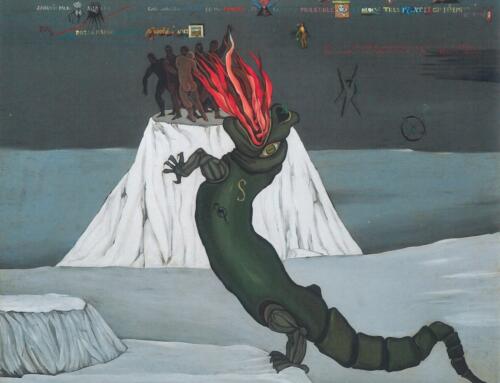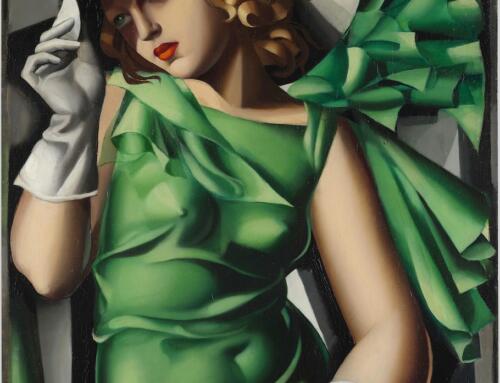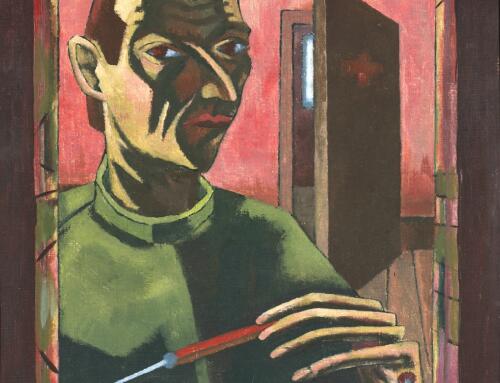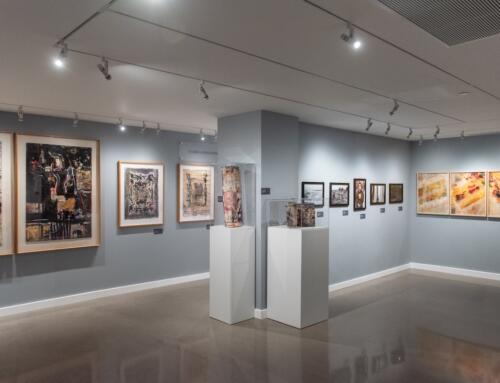Wednesday, March 1
12:00 pm EST / 17:00 Uhr GMT
DOROTHY BOHM (B. 1924): A WORLD OBSERVED
Lecture by Monica Bohm-Duchen
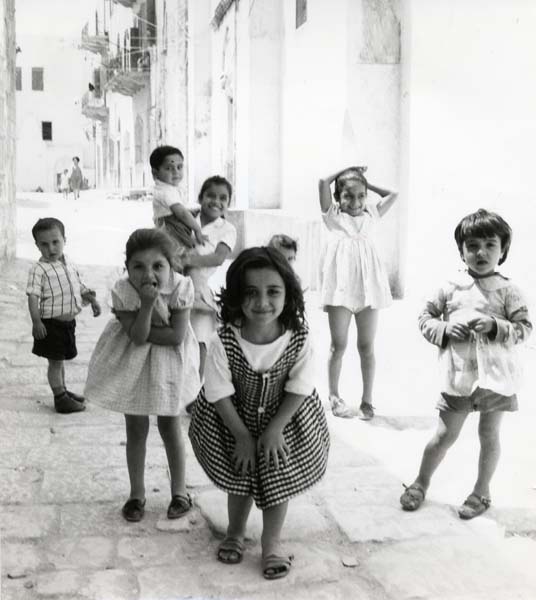
Dorothy Bohm, Haifa, Israel, 1959. © Dorothy Bohm Archive
London-based art historian Monica Bohm-Duchen will give her personal insights into the life and work of her mother, photographer Dorothy Bohm, who as a girl of fourteen found sanctuary from Nazi Europe in the UK, and in due course established herself as one of the leading figures in post-war British photography.
Dorothy Bohm was born Dorothea Israelit in Königsberg, East Prussia in 1924 and came to England as a child refugee from Nazism in June 1939. After studying photography in Manchester she opened her own portrait studio in the city at the age of 21. In the late 1940s a visit to Switzerland prompted her to start working outside the studio, and by the late 1950s she had abandoned studio portraiture for street photography, working in black and white until the early 1980s before moving totally to colour. Her first exhibition, People at Peace, was held at the Institute of Contemporary Arts, London, in 1969, and her first book, A World Observed was published in 1970.
Closely involved in the founding of The Photographers’ Gallery in the early 1970s, she was elected an Honorary Fellow of the Royal Photographic Society in 2009. With a career spanning over seven decades and numerous exhibitions and publications to her name, Dorothy Bohm is widely regarded as one of the doyennes of British photography. Now aged 98, she remains deeply engaged with her photographic practice.
Wednesday, March 15
12:00 pm EST / 18:00 Uhr CEST
THE ART OF FELIX LEMBERSKY (1913-1970)
With Yelena Lembersky and Dr. Ori Z Soltes
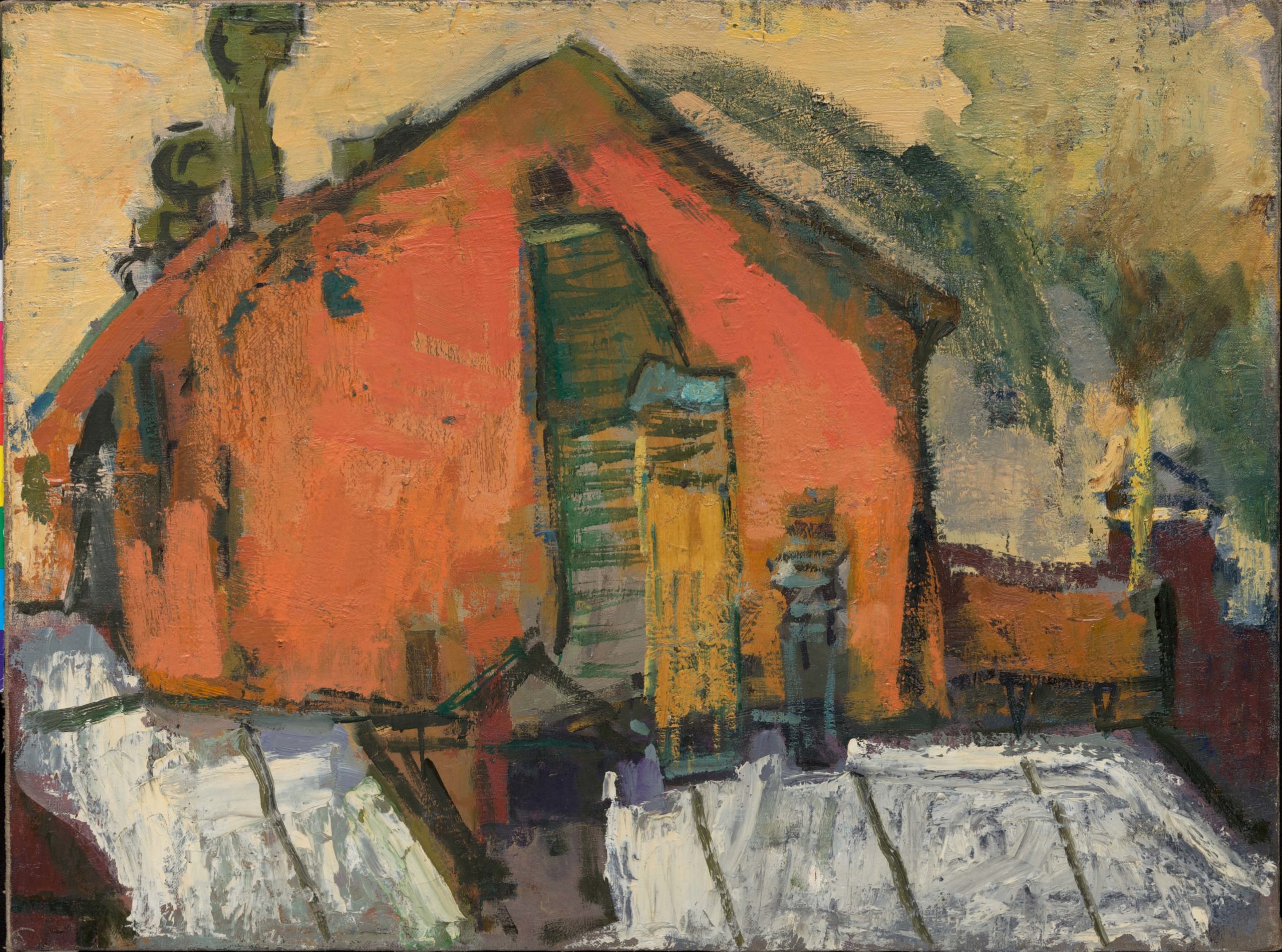
Felix Lembersky, Red Workshop, 1959. Copyright Felix Lembersky estate
Felix Lembersky (1913-1970) was a Soviet Jewish painter, teacher, theater sets designer, and an organizer of artistic groups in Leningrad and the Urals. Born in Poland, he grew up in Ukraine, and had his start in the arts in Kyiv during the Avant-Garde of the 1920s. In 1935, he moved to Leningrad to study realist painting at the Academy of Art. He achieved national recognition for his portraits and paintings on historic subjects but rejected Socialist Realism, mandated by the Soviets, and became a vocal critic of censorship and repressive policies against the arts. He is best known for his Execution: Babyn Yar canvases (ca. 1944-52), the earliest artistic representation of the massacre, and his later non-realist work. In the 1980s, his family brought his oeuvre to the United States.
The program features a talk by Lembersky’s granddaughter, Yelena Lembersky, co-author of the recent and highly acclaimed memoir, Like a Drop of Ink in a Downpour: Memories of Soviet Russia. Yelena will be introduced by Georgetown University professor, Ori Z Soltes, who has known her for many years and has written extensively on the work of Felix Lembersky.
“We are merely honest people and see what is good and bad, and we cannot be confused.” – Felix Lembersky, Leningrad, the Soviet Union, 1960
Wednesday, March 29
12:00 pm EST / 18:00 Uhr CEST
”SWEET KITSCH, I CAN’T DO THAT”
MARIA LUIKO (1904-1941)
With Wolfram P. Kastner and Mascha Erbelding
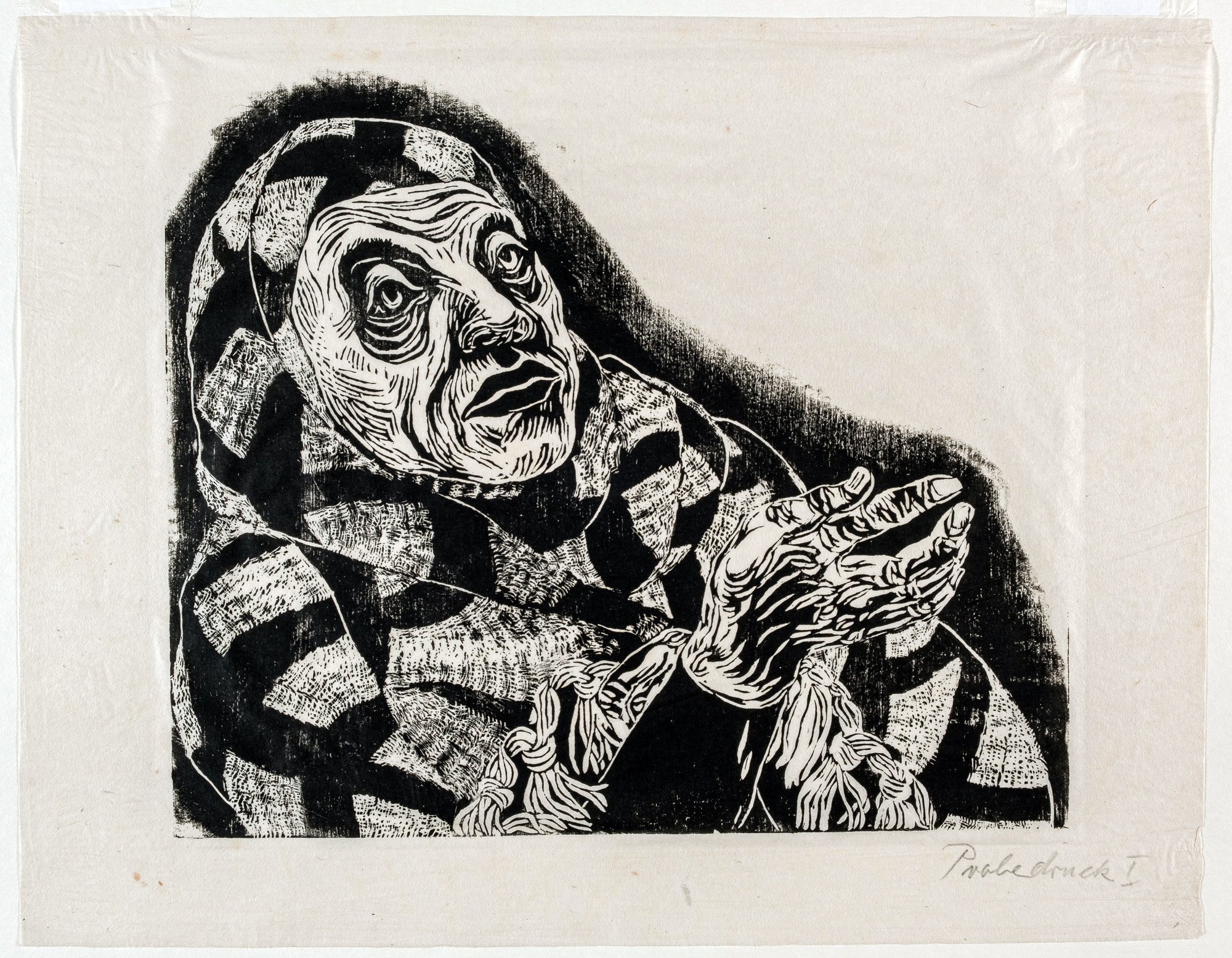
Maria Luiko, Beggar (Bettlerin), ca. 1935. Paper; Woodcut, 30 cm x 38,5 cm. Jewish Museum Munich (Jüdisches Museum München), Collection Maria Luiko
The artistic work of Maria Luiko (1904-1941), born Marie Luise Kohn in Munich, is characterized by an impressive diversity. In addition to drawings, watercolors and oil paintings, she created prints using various printing processes and paper cuts, and designed book illustrations, stage sets and marionettes. Already during her studies at the local Academy of Fine Arts and her training at the School of Applied Arts she was included in exhibitions in the Munich Glass Palace (Münchner Glaspalast).
Her career was brutally cut short by the Nazi regime. In 1933 Luiko was expelled from the Reich Association of Fine Artists and was banned from exhibiting. Until 1939 she contributed to the Jewish Cultural Association and the Marionette Theater of Munich Jewish Artists. A large part of her graphic works, in which she critically deals with the current living conditions and everyday situations, were created during this time. On November 20, 1941 Maria Luiko was deported to Kaunas in Lithuania together with her sister Dr. Elisabeth Kohn, her mother Olga Kohn (nee Schulhöfer) and 996 other Jews and murdered there.
Presentations by Wolfram P. Kastner, curator and artist, and Mascha Erbelding, director of the Puppet Theatre / Fairground Attractions Collection at Münchner Stadtmuseum (Munich City Museum), will be followed by a moderated discussion and Q&A. Introduced by Rachel Stern, director and CEO of the Fritz Ascher Society.
If you live in New York area, or are visiting here, we want to make you aware of a special screening of THE RESTLESS HUNGARIAN on Monday, March 13, 7:00-10:00pm at Cobble Hill Cinemas, 265 Court Street Brooklyn, NY 11231.
This documentary film by Tom Weidlinger is a journey across 3 continents and 4 generations, from Kristallnacht to the Atomic Age, from Bauhaus to our House, from Reason to Madness.
A question and answer period with the filmmaker will follow the screening. Also attending will be Tom’s brother and sister, Jonathan Weidlinger and Lina Panza.
In this searingly honest melding of the personal and historical, filmmaker Tom Weidlinger uncovers the epic story of four generations. Central to the story is Tom’s father, Paul Weidlinger, a brilliant structural engineer who fled Europe just ahead of the Holocaust but who kept a secret, even from his children: the fact that he was a Jew. The film unfolds over five decades and countless countries and cities as Weidlinger traces his famous father’s account of his fantastical life. Attempting to untangle truth from fiction, he uncovers a hidden story and lays bare the scars from his family’s experience of war, displacement, and immigration.
Combining documentary material with recreated scenes from his own childhood, the filmmaker discovers how family tragedies, psychosis, and suicide are manifestations of historical trauma passed on from one generation to the next. Tom Weidlinger’s profoundly thoughtful quest makes meaning from his family’s suffering, resulting in a healing work that breaks the cycle of intergenerational trauma.



